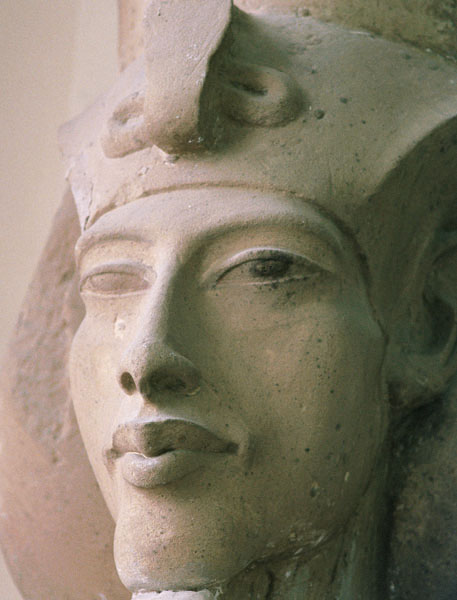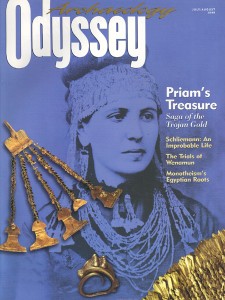
Among the many features of Western intellectual history that can be traced to the ancient Near East, none has been more powerful than the idea of transcendental monotheism—the belief in only one god who exists eternally and apart from his creation. The early Hebrews are generally given credit for this concept, and the Bible reflects their persistent, often painful attempts to maintain this belief in an exclusive god in the face of the ancient world’s dominant belief in its opposite, immanent polytheism—the belief in many gods who personify the forces and elements of the universe.
Ancient Egypt has long been regarded as the paragon of this kind of polytheism, and deservedly so. A list of all the gods found in Egyptian texts would contain over 1,400 names. While most of these belong to obscure deities such as Tayet (goddess of weaving) and Nepri (god of grain), some five dozen can be considered gods of first or second rank, worshiped in temples or mentioned in texts throughout most of ancient Egyptian history.
Already a library member? Log in here.
Institution user? Log in with your IP address.

